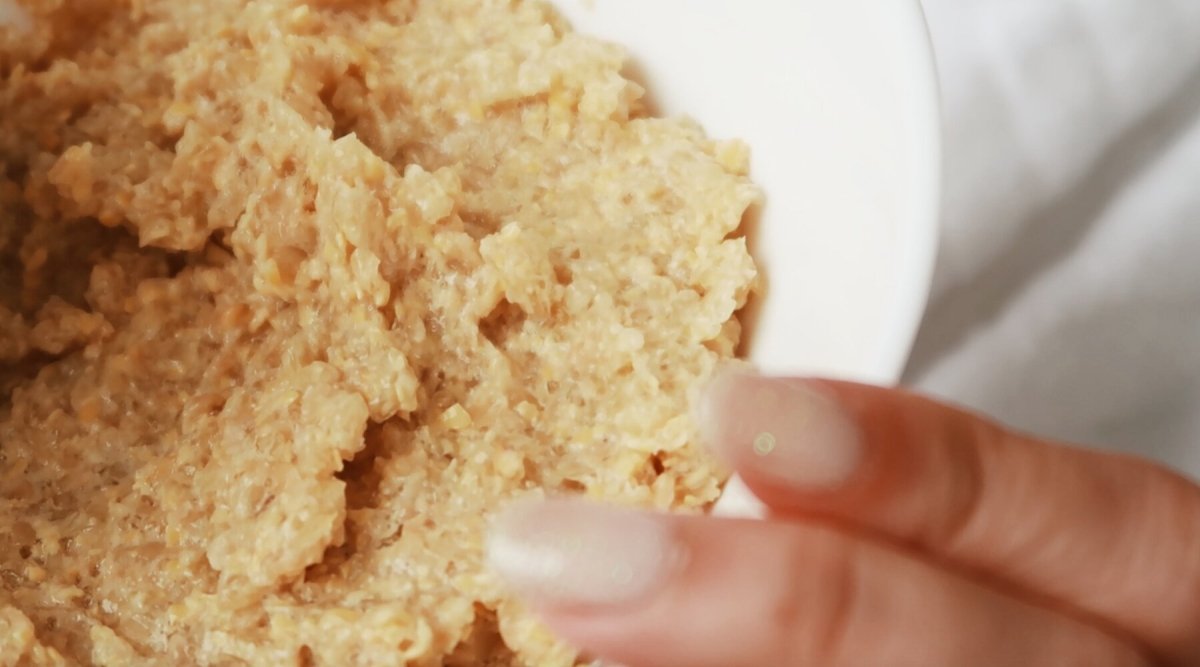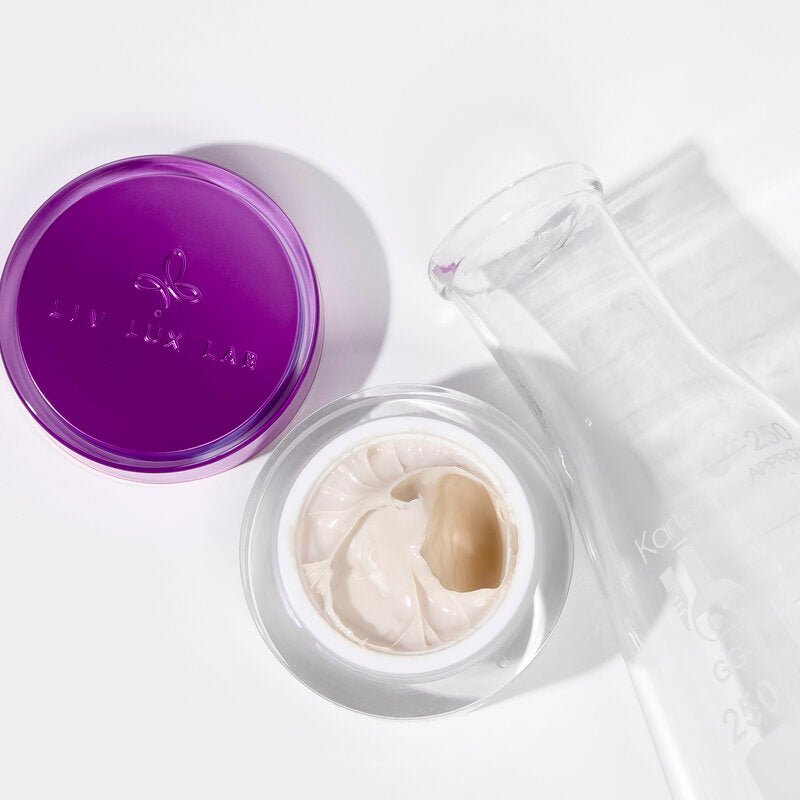Fenugreek is a powerhouse ingredient. Historically, it has been used to remedy many health conditions. There is research citing that fenugreek helps with diabetes and with stimulating milk production in breastfeeding women. Fenugreek has also been shown to help topically. Some people will mix fenugreek powder into massage oil to help stimulate circulation and allow for better nutrient absorption of vitamin E, Vitamin A, B Vitamins and Vitamin C. Because fenugreek is a rich source of amino acids, flavonoids, alkaloids, polysaccharides, galactomannan and saponins (such as diosgenin, yamogenin, gitogenin, tigogenin and neotigogens), fenugreek can also help strengthen, nourish and protect your hair. Whether you're looking to upgrade your current shampoo and conditioners or looking for a new hair repair treatment, adding fenugreek into your daily hair care routine could be the perfect solution for your hair needs.
What is Fenugreek and What Are Its Benefits?
Fenugreek, also known as methi in India, is a powerful plant with medicinal properties and many uses. It's an ancient spice that's been used for centuries to improve hair health and is believed to be effective in treating skin disorders and promoting hair growth. By adding fenugreek into your daily hair care routine, you can enjoy the incredible benefits of its natural nutrients, vitamins and minerals like calcium, iron and Vitamin C that help nourish your scalp conditions.
How to Prepare a Fenugreek Hair Mask for Your Scalp.
A fenugreek hair mask is easy, yet time consuming to make. Although making a fenugreek mask can be timely and messy, the results of healthy hair and a more nourished scalp can make the process worth it. There are a few ways how to make a fenugreek hair mask. One way to make the fenugreek mask is to grind a few tablespoons of fenugreek seeds until you have created a fine powder. Then combine the powder with some water or yogurt to form a paste, apply it onto your scalp and let it sit for about 30 minutes before rinsing out. Another way is to soak the seeds first, then grind and combine with other helpful ingredients. Coconut oil and yogurt are two popular complimentary ingredients to complete a fenugreek hair mask due to the emollient fatty acids in coconut and the protein and probiotics in yogurt. Yet another way is to use a hair mask from Save Me From Hair Repair which encapsulates the beneficial actives of fenugreek seeds in a formula proven to penetrate and improve the condition of the hair.
Check out the results after using a DIY fenugreek hair mask.

Tips for Caring For Your Hair After Applying a Fenugreek Mask.
After applying a fenugreek mask, be sure to follow up with proper hair care. Start by using a wide-toothed comb to gently separate your locks. Since many at-home diy fenugreek mask recipes usually include oils, you’ll want to shampoo and condition your hair as normal. Contrary to the do-it-yourself method of making a fenugreek hair mask, we recommend if you’re using Save Me From hair repair treatments that are rich with fenugreek to be applied after shampoo and conditioning. These fenugreek hair products are formulated to be used sparingly as a leave-in treatment, only using about a pea-size portion that is blended with water to create a silky serum like consistency and allowed to remain in the hair for better results.
Understand Possible Side Effects of Frequent Fenugreek Usage on Hair.
When using fenugreek for hair, it’s likely you’ll ask what the potential side effects are one must consider when using fenugreek on your hair and fenugreek on your scalp. Luckily, there are many benefits and no risks associated with applying fenugreek seeds paste or fenugreek mask topically to your scalp or on your hair. In fact, studies have shown when fenugreek seeds were applied to wounds, they have been helpful in releasing anti-inflammatory properties and work to maintaining the healing process. This could be due to the fact that fenugreek seeds contain fatty acids which can help build collagen which can further wound healing and elasticity.

Although fenugreek seeds are safe to be applied daily, it’s always a good idea to conduct a patch test to ensure you don’t have any unknown allergies. One thing to bear in mind is that fenugreek seeds naturally have a maple-like aroma. Due to this, your hair may emit a maple-like aroma too when applying fenugreek paste to your hair. Depending upon how you view it, this uncommon maple-like scent is a fair trade off for those who struggle with thinning hair, a dry scalp, dandruff or an itchy scalp since fenugreek seeds can help treat all these issues with their rich antifungal and antibacterial properties and high protein, antioxidant and nicotinic content.
Read more about the Benefits of Vitamin B3 here.
Alternatives to Fenugreek That Will Boost Healthy Hair Growth
If you're looking for alternative products to fenugreek that will boost healthy hair growth, there are a few options you can explore. Coconut oil, aloe vera, and avocado oil all have nourishing and restorative properties. Additionally, applying certain vitamins such as B-complex or taking biotin supplements have shown to be effective in enhancing healthy hair growth. Performing a champi scalp massage a few times can also be very helpful for stimulating a healthier scalp. You can read more about performing an ayurvedic scalp massage here. Ultimately, it’s best to experiment and refine with which method will work best for you and your hair.
Can we use fenugreek for hair daily?
In conclusion, fenugreek seeds are safe to be applied daily to the hair and scalp. However, due to the time and mess in creating a diy fenugreek hair mask, it is hard to remain consistent to see results. We recommend using Save Me From Hair Repair Treatments which are hair products rich in fenugreek for maximum results.
Fenugen, The Fenugreek Rich Hair Treatment for Healthier Hair
It's worth diving deeper into the hair reparative benefits of Fenugen. Inspired by Ayurvedic medicine, Fenugen captures the most active parts of fenugreek and unleashes its rich phytonutrients into a concentrated and purified active ingredient. Fenugreek phytonutrients include medium and long chain fatty acids, terpenoids, polyphenols, phospholipids and vitamins A, C and B variety vitamins (including vitamin B3 for hair benefits) and paired these with bio-boosters like ubiquinone (also known as Coenzyme Q10 for hair), organic Karanja (also known as Pongamia for hair benefits) and medium chain triglycerides (MCT’s derived from coconut for hair). As you age, scalp inflammation and imbalances can lead to inflammation and hair thinning. Fenugen is a rich source of nutrients with anti-inflammatory properties – in addition to phospholipids such as phosphatidylcholine, conditioning mucilage & vitamins A, C & several B that replenish your hair’s hydration, restores healthy porosity and lightly condition your hair. Through a patented eco extraction process, we've magnified fenugreek’s phytonutrients and phospholipid content into our clinically proven technology. Fenugen possesses the rich nutrients of fenugreek seeds in a complex 5x more potent in its phytonutrients. These nutrients include Vitamin A, B Vitamins, Vitamin C and more. With consistent, long-term use, hair bonds are rebuilt, hydration is restored helping to reduce frizz, the scalp is energized and nourished from within allowing hair that's more resistant to damage to emerge. Rooted in Ayurveda, our Fenugen is the best ingredient for healthy hair - clinically proven to transform hair from tip to root, inside and out.
Gupta, Piyush Kumar, Nagendra Singh Chauhan, and Anupam Pathak. "Effect of Trigonella foenum-graecum Linn.(seeds) and Butea monosperma Lam.(flowers) on chemotherapy-induced alopecia." Spatula DD 3.3 (2013): 121-125.
Muhammed, D. O. "Effect of application of Fenugreek (Trigonella foenum-graecum) on skin wound healing in rabbits." AL-Qadisiyah Journal of Veterinary Medicine Sciences 11.2 (2012): 86-93.
Nagulapalli Venkata, K. C., Swaroop, A., Bagchi, D., Bishayee, A., A small plant with big benefits: Fenugreek (Trigonella foenum-graecum Linn.) for disease prevention and health promotion. Mol. Nutr. Food Res. 2017, 61, 1600950.
Ruwali, P., Pandey, N., Jindal, K., & Singh, R. V. (2022). Fenugreek (Trigonella foenum-graecum): Nutraceutical values, phytochemical, ethnomedicinal and pharmacological overview. South African Journal of Botany.





